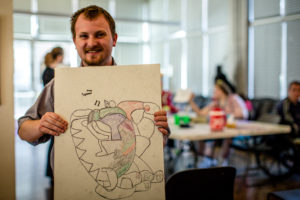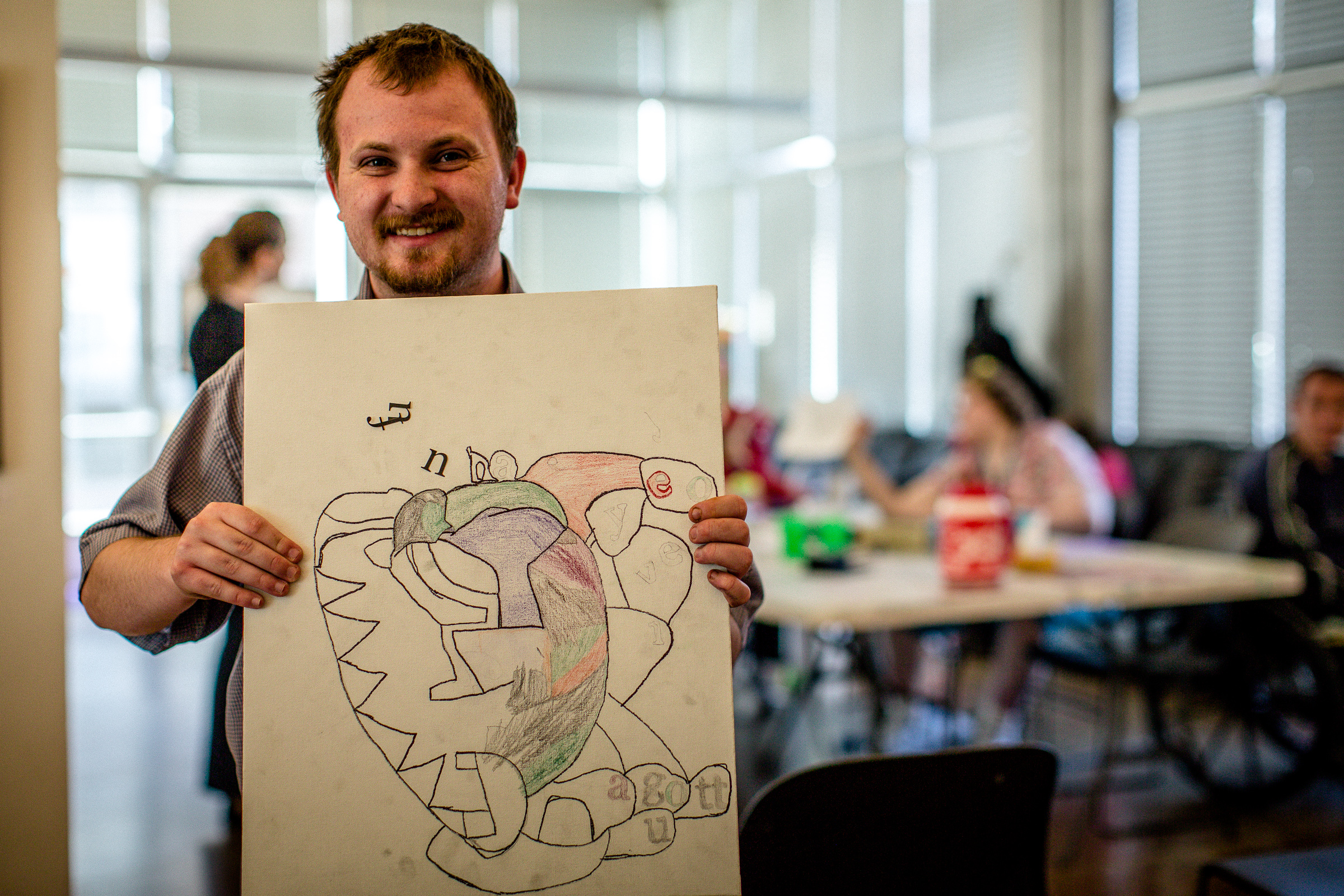
“Jesus in the Breeze” is one of many titled visual art pieces on display at the TURN Center for the Arts. The center, a program within SLC’s TURN Community Services, provides opportunities for creative expression for people who, as Program Director Allison Michel notes, “typically don’t have a voice.” Classes at the center cover dance, drama, music, writing and visual arts, and are offered to people with disabilities.
The program launched three years ago in part because the TURN organization realized that services offered to people with disabilities generally focus on activities of daily living and not on individual creativity. The small but dynamic staff and volunteer crew educate and facilitate. They teach, for example, tools for dramatic expression, drawing and painting technique, music theory, ballet and hapkido, a Korean form of self-defense, which Allison says is by far the most popular class.
Though not formally art therapy, the classes are therapeutic in design and delivery as artists explore the freedom of discovering, listening to, and expressing their thoughts and feelings. “Art nurtures growth and self-confidence,” Allison says. “What we do here at the center is to set people up in a space with materials so that they can show the world that they are here, they exist, and they are meaningful.”
Creativity is also a means through which to express feelings of self-worth. Being an artist is a potential way for the center’s participants, who often cannot engage in fulfilling employment, to earn an income. She describes John as a “very witty” artist with a “unique perspective on the world,” whose pointillism technique painting of Ozzy Osbourne sold for $275 at a silent auction. “Through his artwork,” she attests, “John feels like he is productive.”
The program’s offerings are tailored to the needs and interests of the artists, and success is measured by participant interest. “We are here to serve them,” says staff member Natasha Hoffman. This non-prescriptive approach is rare and refreshing in social services, yet similar to other nonprofits, the center could always benefit from volunteer help and donations. Currently, the center is hosting an online fundraising page for a documentary that Natasha is producing. “We want to show what we do, and what the artists have accomplished,” she says.
The center’s staff are passionate about changing society’s perception of people with disabilities. “Disabilities are not someone’s defining characteristic,” Allison says, and notes that “there is still a disconnect with the community at large and people with disabilities. We want ladies and gentlemen to not only to find their voice here, but also to be able to share that voice with the community.” Natasha adds that art is “a way of empowering people with disabilities in a world that too often is dismissive of their contributions. When you feel heard and understood by the world” she remarks, “everything changes. Art makes people feel valuable.”
TURN Center for the Arts participates in the monthly Salt Lake Gallery Stroll, and promenading patrons may bid on shown work.
For information on contributing to the program’s documentary fundraiser, visit igg.me/at/turndoc. TURN Center for the ARTS 511 W. 200 S. Salt Lake City






